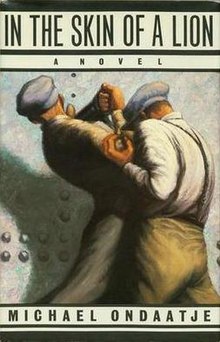_book_cover.jpg/220px-Propinquity_(novel)_book_cover.jpg) The word propinquity describes the relationships people make, romantic or otherwise, through shared interests or activities. In other words, one is most likely to form a close bond with somebody they spend a lot of time with. And in the case of the novel, Propinquity, by John Macgregor, there are plenty of close bonds formed, between classmates and lovers. Propinquity's first half is largely about the relations between main character Clive Lean and his school buddies, Lake and Gilberte. A romance also brews between Clive and the lovely Sam. While some may complain these early parts are too much background, they are also the book's most entertaining, with some fun encounters involving Clive inheriting his father's failing business, and an experimental drug trip in medical school. It's the book's last half that draws comparisons to The Da Vinci Code, and this is where the book also, unfortunately, loses my interest.
The word propinquity describes the relationships people make, romantic or otherwise, through shared interests or activities. In other words, one is most likely to form a close bond with somebody they spend a lot of time with. And in the case of the novel, Propinquity, by John Macgregor, there are plenty of close bonds formed, between classmates and lovers. Propinquity's first half is largely about the relations between main character Clive Lean and his school buddies, Lake and Gilberte. A romance also brews between Clive and the lovely Sam. While some may complain these early parts are too much background, they are also the book's most entertaining, with some fun encounters involving Clive inheriting his father's failing business, and an experimental drug trip in medical school. It's the book's last half that draws comparisons to The Da Vinci Code, and this is where the book also, unfortunately, loses my interest.Clive has ambitions to enter medical school, and the grades to do so as well. His closest buddies also share his ambition, but soon other interests get in their way. Lake has a spiritual longing to discover something that will give his life meaning, so he travels to the Australian country side and interacts with some aboriginal people there. Gilberte also loses interest in medical school and travels to Italy to become a bodyguard. A third friend, whose name escapes me, has more radical, socialist ideas and turns his desires to aid a revolutionary cause in Haiti. This leaves Clive distraught, as his core group of friends leaves him with his increasingly disillusioned goal of achieving a medical degree. The death of his father releases this from him as he inherits his father's business.
The business, however, only lasts so long and Clive is yet again on track to earning his doctorate in medicine, this time in Oxford. Here the true plot of the story begins to unfold, when Clive meets Sam, the daughter of the Dean of the Westminster Abbey. Sam teases Clive with some mystery concealed beneath said abbey, and Clive somehow finds this very intriguing. Unfortunately, Clive's enthusiasm failed to infect me. Macgregor very slowly, painfully slowly, prods this secret out from Sam, though he does, in the meantime, make some very amusing detours.
No doubt, the comparisons to The Da Vinci Code are meant to stir greater interest in Propinquity, which was actually written first, but was recently re-published. Not having read Dan Brown's best-seller, my own comparisons will be limited, but I can say both books have to do with the Catholic church hiding, for thousands of years, some secret that would supposedly transform the entire organization if made known. Unfortunately this is where the book becomes its most tedious. When Sam teases Clive with a sense of mystery, I felt a sense of dread that the novel was about to turn away from what had been making it so much fun.
And indeed it does. Part of the problem is that Macgregor does not clearly reveal what this mystery is, or what is truly at stake if its secrets are released to the public. The characters seem very excited to reveal their new discovery to the public, but their excitement also seems to mask a certain naivete. There have been many attempts to discredit firmly established Christian beliefs, particularly those that seek to disprove events in the Bible, but it makes no difference. Faith is not so easily shaken by claims made by even the most expert of historians and scientists. Such a document as Clive and Sam uncover is more likely to go unnoticed except by a very small minority of scholars. This wouldn't be such a problem, however, if Macgregor had set his sights on something more solid than "gnosis," which he never clearly defines.
Macgregor certainly has talent. It's a rare book that makes me laugh out loud as much as this one did. I can't help but wish Macgregor had continued along the same lines as at the novel's start, but then, I guess, where else would it have to go? Perhaps it's simply that this is not the type of story for me, which delves too heavily into an abstract philosophy that seems to hold no real practical value. In the end this feels like two completely different stories mashed together. The first is about a group of young men seeking themselves during college. The second is an action fantasy drama about toppling a major religious institution's beliefs. Surprisingly it's the first that's the most fun. I'd like more of that one.
